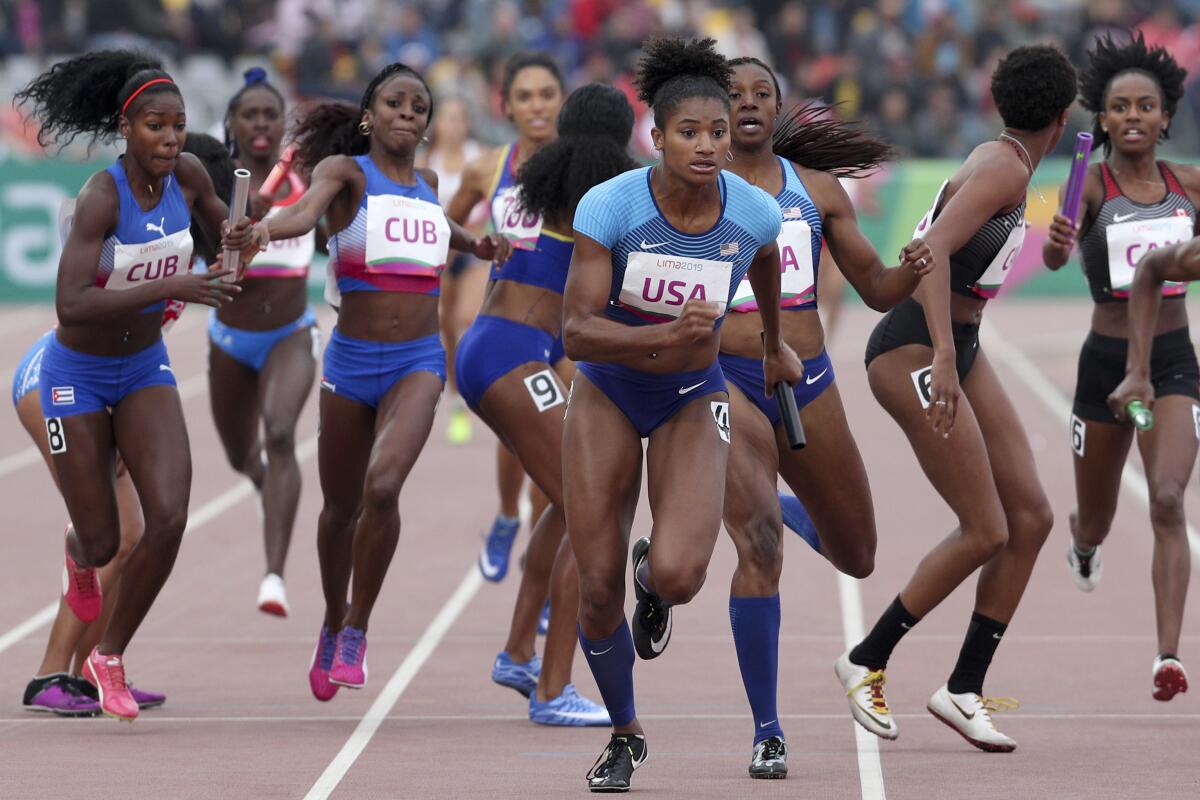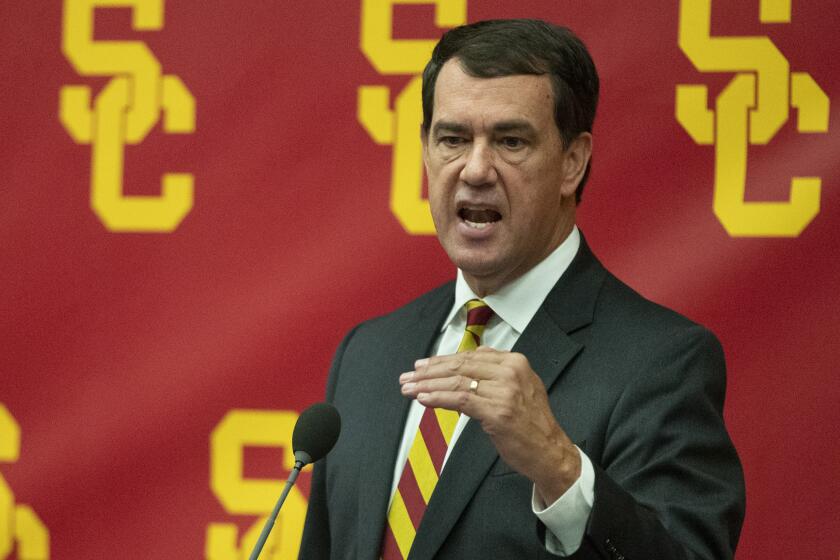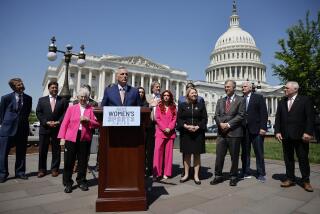USC student-athletes form organization to ‘combat racial inequality’

As college athletes have begun to realize their power as activists amid ongoing racial strife, a collection of Black student-athletes and allies at USC have formed an organization to “urge USC and USC Athletics to take bold, decisive action to combat racial inequality and support Black students.”
Anna Cockrell, an All-American senior hurdler at USC, announced the formation of the United Black Student-Athletes Assn. (UBSAA) on Wednesday in a statement she emailed to USC athletic director Mike Bohn.
“It is long overdue for Black student-athletes at USC and our non-Black allies to come together and speak out against racial injustice and police brutality,” the email read. “Given our unique position and platform as athletes at a prestigious university, we cannot remain silent on these issues.”
The platform for UBSAA came together in recent weeks as Cockrell and many other USC student-athletes discussed their pain and anger in the wake of the May 25 death of George Floyd, a Black man who died while in police custody after a white officer had a knee on Floyd’s neck for more than eight minutes.
A week later, a collection of student-athletes, along with some USC coaches and administrators, joined a Zoom call to share their feelings and build a plan for creating change within athletics.
USC distanced itself from a booster after ‘abhorrent and blatantly racist tweets’ in the wake of mass protests over the death of George Floyd.
“Right now, there’s something very specific happening,” Cockrell said, “and we want that addressed. We want to address it ourselves, and we want USC to address it as well.”
The newly formed group acknowledged that USC has made recent statements of support for the Black community, including decisions to strip the name of a eugenics leader from a campus building and to cut ties with a football booster who used hate speech on social media. But UBSAA suggested in its letter that “it is not enough.”
“They must support their words with sustained action and commitment to the Black community,” the letter read.
That action begins with first “unequivocally stating that Black Lives Matter.”
“USC Athletics must prioritize our lives and well-being over pandering to boosters and donors,” the email continued.
Cockrell said she believed the department’s initial response to Floyd’s death and rising racial tensions was “a little bit delayed” and “too vague.” But she was pleased with how Bohn and USC responded to UBSAA’s demands on Wednesday.
In a statement, the athletic director declared that USC would “embrace the meaning of Black Lives Matter” and stand in solidarity with Black student-athletes, coaches, and staff.
“Indeed,” Bohn said, “this is a time for action, not words.”
Bohn announced in his statement the formation of the department’s own group, the USC Black Lives Matter Action team, which will apparently work in conjunction with UBSAA to institute meaningful reform within USC athletics.
The UBSAA laid out several suggested courses of action in its letter, including considering more Black candidates for athletic department jobs. The group specifically noted that USC athletics does not employ any Black psychologists in its sports psychology department, while only one member of its athletics medicine staff is African American.
Among other demands, the letter to Bohn called for implicit bias training for all student-athletes and staff members and a policy of no athletic activities on election day, as well as assurances that student-athletes would be “free to speak out, post on social media, and participate in protests and public demonstrations without fear of any retaliation.”
Bohn did not specifically address any of those demands, but did note that he would “enthusiastically encourage our student-athletes to use their platforms to effect change.”
Across the nation, student-athletes are harnessing that power unlike ever before. The looming question, as campuses re-open and sports slowly return, is how far they’ll go in using it.
For now, Cockrell says, UBSAA is only planning to maintain a dialogue with USC as it attempts to hold the university accountable for its promise of “bold and decisive action.”
“We’re not in a position where right now we’re feeling, ‘Oh my god, we need to threaten boycott or we need to do XYZ,’ ” Cockrell said. “The fortunate thing about USC is President [Carol] Folt and Mike Bohn, they’re listening right now. It’s not a matter of leverage at this point, at all. Because we have their ear. That’s really special.
“While we have it, what we have to do is keep having the conversation, keep pushing the issue, and follow up with the actions that we committed to.”
More to Read
Go beyond the scoreboard
Get the latest on L.A.'s teams in the daily Sports Report newsletter.
You may occasionally receive promotional content from the Los Angeles Times.








